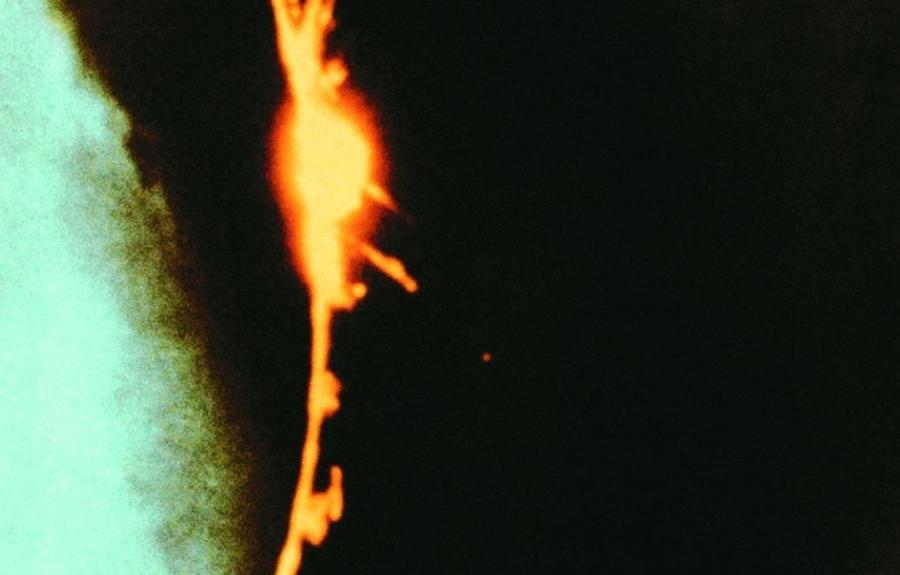Film series: Experimental Lens

Cornell Cinema has been proudly presenting artist films and experimental cinema since its inception, often with filmmakers visiting to discuss their work.
James Benning’s RR is a conceptual film, consisting of 37 shots over its 110 minutes, photographed across the United States. Each shot lasts roughly the length of time it takes a freight train to enter and then fully exit the frame (there is a real fun guessing game to be played here!). RR is also a landscape film, documenting the rural America most people don’t see, the near-invisible routes of commerce as locomotives transport goods through deserted plains.
"The spectacle is not a collection of images; rather, it is a social relationship between people that is mediated by images." (Guy Debord, The Society of the Spectacle)
The Society of the Spectacle is an avant-garde essay film in which Situationist thinker and political theorist Guy Debord uses a montage of film clips and text to formulate a Marxist critique of capitalism, mass marketing, and consumer culture, inspired by his own landmark 1967 book of the same title. In the nearly five decades since it was released, The Society of the Spectacle remains a potent and at times exhilarating critique of contemporary society and of the power of the image untethered from its original context.
On October 5, filmmaker Lori Felker presents a program pairing several of her short films with the works of other filmmakers, centering around motherhood and miscarriage, part of our Abortion & Bodily Autonomy series. Felker works in a variety of mediums and has shown her work internationally at festivals across the globe. Her short film Spontaneous documents her spontaneous abortion while attending a film festival, and the private anxieties in public venues that follow such an event.
French filmmaker Emmanuel Lefrant makes all his work exclusively on celluloid and will present his oeuvre at Cornell Cinema on October 24. Lefrant is the Director of Light Cone, a distributor of artist-made films based in Paris, and he was involved in the artist-run film laboratory L’Abominable. Lefrant’s films “lie on the idea of representing, of revealing an invisible world (the secret forms of emulsion), a nature that one does not see.” Several of his films reveal the literal world, owing to Lefrant’s burying lengths of film in the earth.
Perhaps no other figure in avant-garde cinema casts as long of a shadow as Stan Brakhage, whose filmmaking career spanned 50 years and produced some of the most indelible images of experimental film. Dog Star Man, Brakhage’s feature-length cycle of films from the early 60s, marked a shift of lyrical cinema to more abstract image-making. This densely woven avant-garde film screens in a new 16mm film print, accompanied by a live score by Owen Marshall and Adam Southard. Through a concatenation of analog synthesizers, tape loops, and other electronics, Marshall and Southard provide an emergent and immersive soundscape in conversation with Brakhage's visual explorations, performed and dedicated to the memory of Professor Trevor Pinch (1952-2021). Sponsored by Science & Technology Studies.





